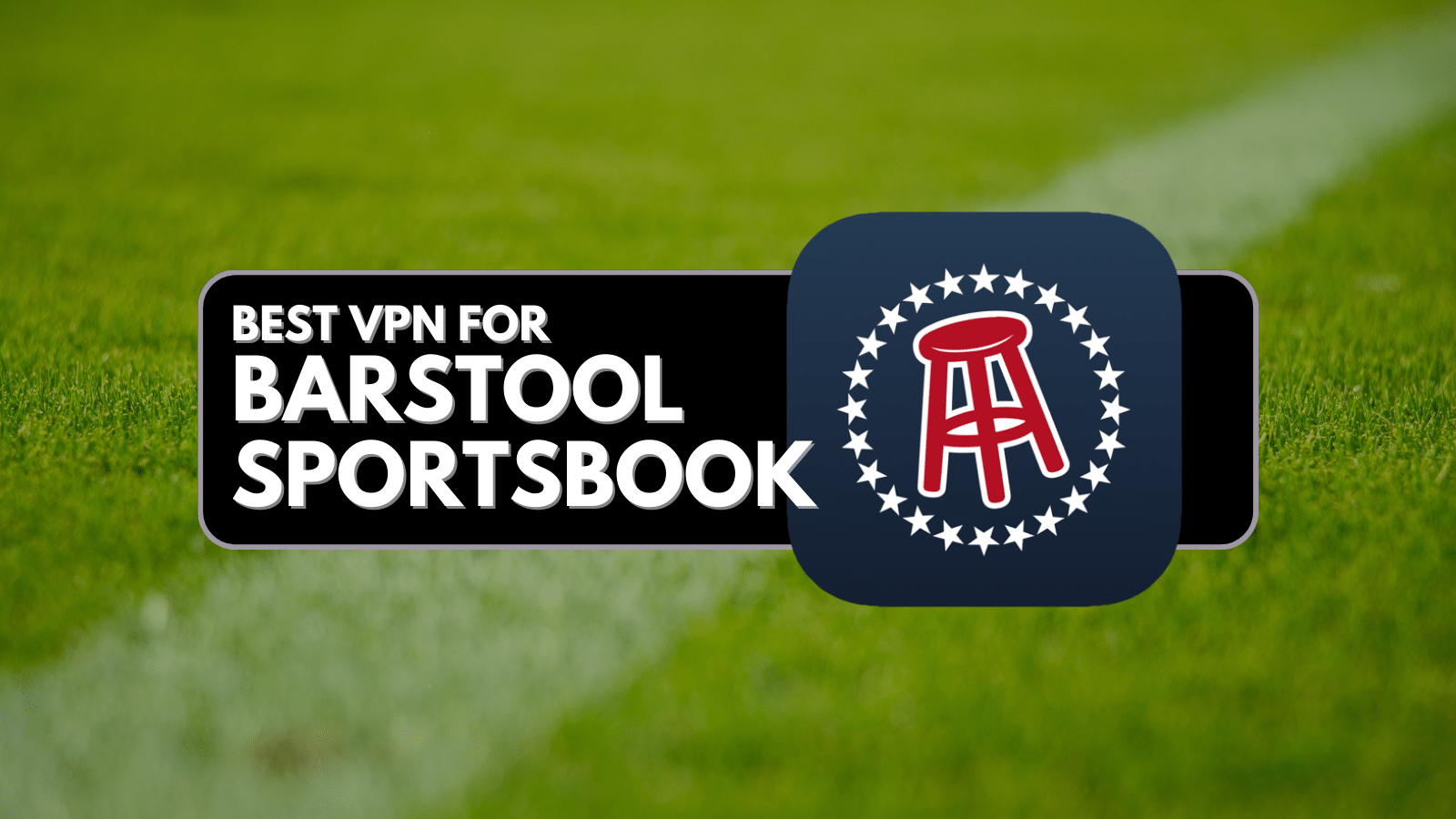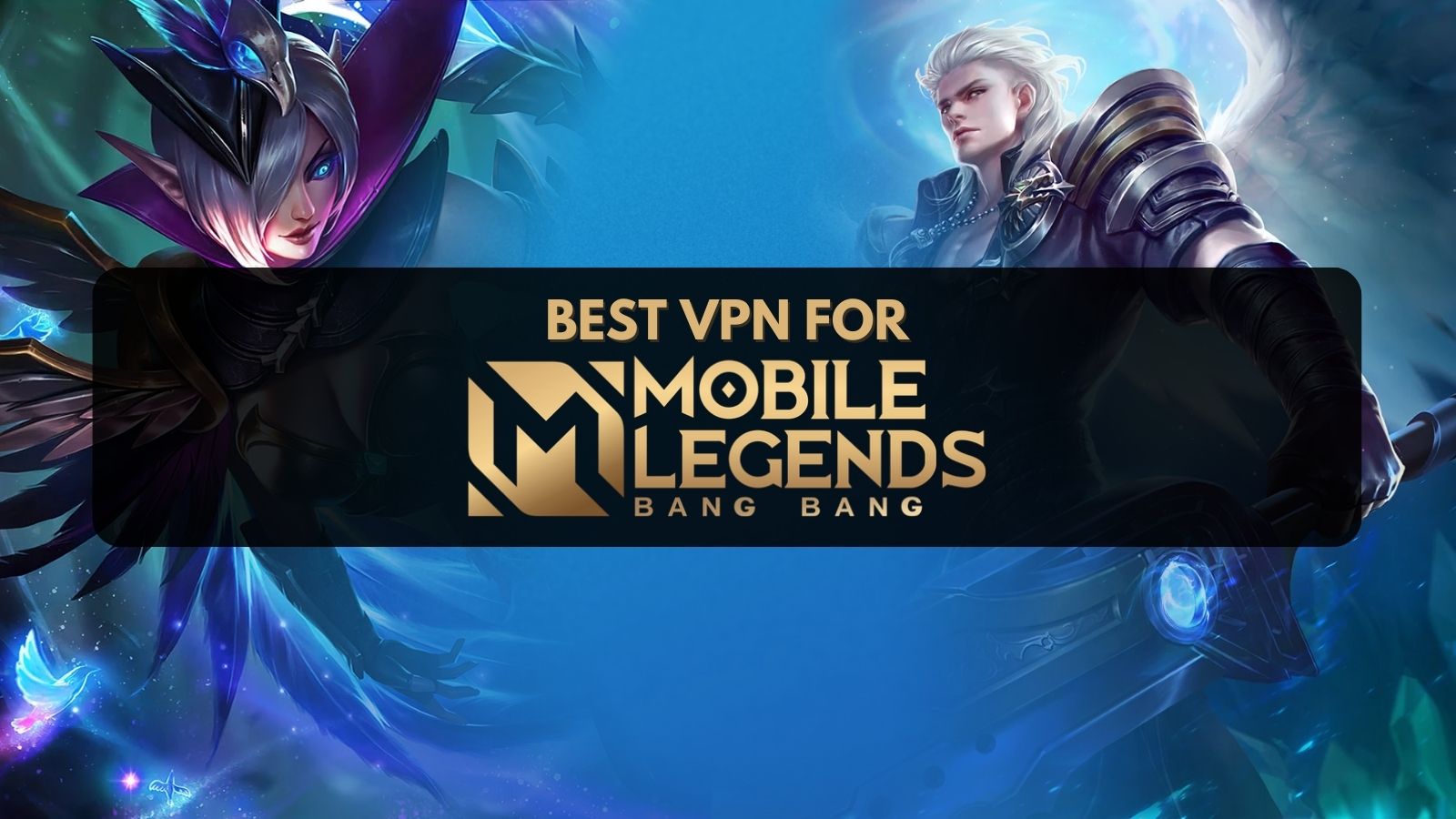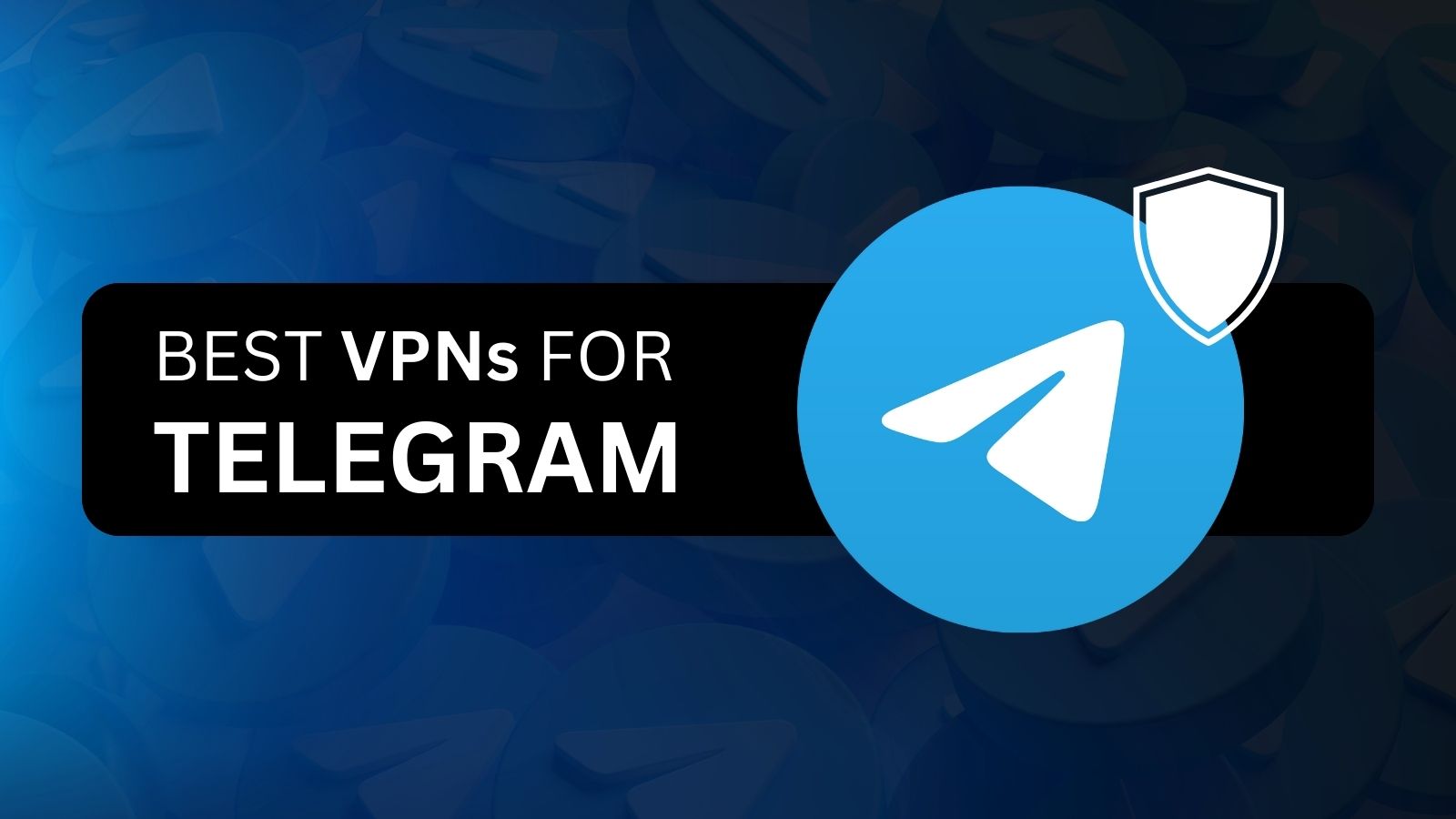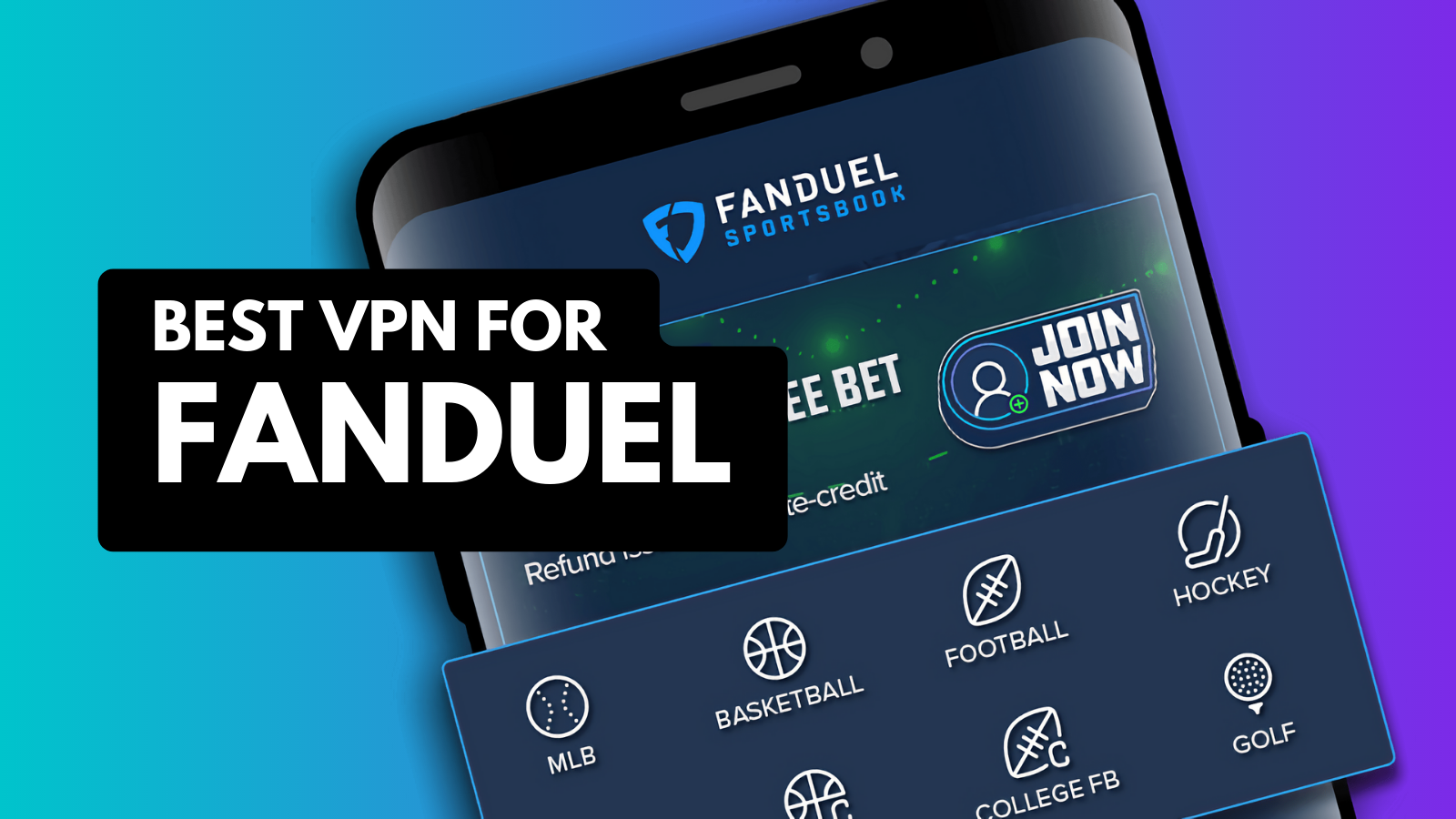When you purchase through links on our site, we may earn an affiliate commission. Here’s how it works.
5 Best VPNs for Public Wi-Fi in 2025
Our experts have reviewed 53 VPN providers, which were put through extensive rounds of testing. To learn more about that process, here’s how we review VPNs, where we explain our criteria and our policy of being fully transparent.
Public Wi-Fi hotspots and networks are not encrypted and are prone to cyberattacks. Thus, they are often targeted by hackers, putting users at great risk of having their data stolen. People who connect to vulnerable networks can also get infected with malware or fall prey to phishing and other scams. On top of that, WiFi providers often harvest sensitive data.
Luckily, by using the best VPN for public Wi-Fi, you can avoid all these problems and use the Internet safely. A VPN will encrypt your connection and ensure that third parties can’t steal your data. You’ll also be able to hide your IP address, as well as your online activity.
In this article, we’ll share the top 5 Wi-Fi VPNs and show you how to use a VPN on a public network. We’ll also explain why you need a VPN, help you compare the best options, tell you how to choose the right provider, and provide some tips on using public Wi-Fi safely. We'll finish with a round of FAQs.
Best Wi-Fi VPNs - Our Shortlist
- NordVPN – Our #1-Rated Best VPN for Public Wi-Fi in 2025
- Surfshark – Best Wi-Fi VPN for Privacy and Security
- ExpressVPN – Fully Obfuscated and Advanced VPN for Wi-Fi
- CyberGhost VPN – User-Centric VPN with Specialized Servers
- Private Internet Access – High-End VPN with Unlimited Connections
How to Use a VPN on Public Wi-Fi
To use a VPN on public Wi-Fi, you must find a provider that offers powerful encryption and other security features and get a subscription. Here’s everything you need to do:
- Sign up for a VPN that connects safely to public Wi-Fi (we recommend NordVPN).
- Download and install the VPN app on the device(s) you’ll use.
- Open the VPN app and log in to activate it.
- Connect to a VPN server in a country of your choosing.
- That’s it! Now, you’ll be able to use any network safely.
If you use a VPN on public Wi-Fi, you’ll be able to connect to networks in airports, hotels, restaurants, and other similar places without worrying about your safety. This means you can also shop safely online on such networks and engage in any activities you would normally do at home on your private network.
The Best VPNs for Public Wi-Fi in 2025
To find a VPN, we follow the criteria from our best VPN guide. First and foremost, you should look for strong privacy and security features, such as a no-logs policy, robust encryption, and secure VPN protocols. Also, choose a VPN that offers obfuscated servers, which hide that you’re using a VPN.
Another important criterion is a kill switch—this prevents data leaks if something unexpected happens to your VPN connection. Split tunneling is also a necessity. Moreover, look for a provider that offers fast speeds, reliable performance, and multiple simultaneous connections. You should also make sure your VPN supports a wide range of devices.
Furthermore, look for a VPN that has a wide server network, along with the ability to unblock censored and geo-restricted content. Lastly, ensure that your chosen provider offers a fair price, a generous money-back guarantee, and reliable 24/7 customer support.
Based on the criteria mentioned above, we recommend these 5 best Wi-Fi VPNs in 2025:
1. NordVPN – Our #1-Rated Best VPN for Public Wi-Fi in 2025
NordVPN is the best VPN for public Wi-Fi and offers some of the best privacy and security features on the market. You’ll get AES 256-bit and ChaCha20 encryption, secure protocols (OpenVPN, NordLynx, and IKEv2/IPsec), and an independently audited no-logs policy. You’ll also benefit from obfuscated servers, a reliable kill switch, and split tunneling.
But that’s not all. NordVPN also has an ad-blocker, anti-malware, data leak protection, a Double VPN feature that routes your traffic through 2 servers instead of 1, a dedicated IP address, Threat Protection, SmartDNS, Private DNS, and more.
We'll also add that NordVPN is one of the speediest VPN providers overall. You'll be amazed by its speed and performance, whether you pick a nearby or remote server.
With NordVPN, you’ll get up to 10 simultaneous connections, which you’ll be able to use on a wide range of devices, such as phones, tablets, laptops, and more. Also, it has a large server network that contains more than 6,300 servers in 111 countries. Thus, this provider is also great for accessing censored and geo-blocked content.
NordVPN's 2-year plan starts at $3.09/month, and all NordVPN plans are eligible for a 30-day money-back guarantee. In addition, you’ll get dedicated 24/7 customer support via their live chat feature.
PROS
- Superb privacy protection.
- Wide range of security features.
- Double VPN option available.
- Compatible with many devices.
- 24/7 live chat support.
- 30-day refund policy.
CONS
- Partially obfuscated network.
2. Surfshark – Best Wi-Fi VPN for Privacy and Security
Surfshark is among the best Wi-Fi VPNs if you prioritize strong security and privacy. You’ll be protected by features like a no-logs policy, secure VPN protocols (OpenVPN, WireGuard, IKEv2/IPsec), military-grade encryption (AES-256 and ChaCha20), a capable kill switch, obfuscated servers, and split tunneling. But that’s not all.
As a Surfshark user, you’ll also get great data leak protection, a multi-hop feature, CleanWeb (which removes ads, trackers, malware, and phishing attempts), private DNS, its innovative Nexus technology that rotates your IP, and more.
Surfshark is one of the fastest VPNs available on the market, providing you with super-fast speeds and reliable performance. Moreover, it allows you to have an unlimited number of simultaneous connections. So, you can use it on all your devices, including your phone, laptop, tablet, and more.
With Surfshark, you’ll have access to a network of over 3,200 servers in 100 countries. This will allow you to unblock geo-restricted and censored content.
This VPN comes priced at $2.19/month for its 2-year subscription plan. Furthermore, the service's 30-day money-back guarantee allows you to try it risk-free, and you’ll receive excellent 24/7 customer support.
PROS
- Innovative Nexus technology rotates IPs.
- Strong security and privacy features.
- 30-day refund guarantee.
- Multi-Hop feature available.
- Ideal for beginners.
- 24/7 live chat support.
CONS
- Takes a while to connect.
3. ExpressVPN – Fully Obfuscated and Advanced VPN for Wi-Fi
ExpressVPN is another capable VPN for Wi-Fi hotspots because it offers enterprise-level security to encrypt your public Wi-Fi connections and ensure your safety from any cyberattacks. Some of the security features it offers include an independently audited no-logs policy, military-grade AES 256-bit and WolfSSL encryption, and secure VPN protocols like Lightway, OpenVPN, and IKEv2/IPsec.
This VPN also has obfuscated servers, which hide the fact that you’re using a VPN. It also comes with an automatic kill switch, data leak protection, a Threat Manager, and split tunneling. With one ExpressVPN subscription, you’ll be able to connect up to 8 devices simultaneously.
You’ll get blazing-fast speeds and stable performance on top of that. Plus, you can use ExpressVPN on a wide range of devices, including your phone, PC, laptop, tablet, and more. You can even use it at home by setting it up on your router, which will protect your entire network.
In addition, this VPN offers a wide server network of thousands of servers in 105 countries, which contributes to its excellent content-unblocking capabilities. With it, you can access any censored or geo-blocked content.
The lowest you can pay for ExpressVPN is $6.67/month (1-year plan). Also, all plans come with a 30-day money-back guarantee, which you can use as a risk-free trial. All ExpressVPN users get reliable 24/7 customer support via live chat, available on the official website.
PROS
- Enterprise-grade security features.
- Military-grade encryption.
- Easily unblocks restricted content.
- 30-day money-back guarantee.
- Among the fastest VPNs.
- 24/7 live chat support.
CONS
- On the pricier end.
4. CyberGhost VPN – User-Centric VPN with Specialized Servers
CyberGhost has many security and privacy features that will protect you on public Wi-Fi like a no-logs policy, secure VPN protocols (OpenVPN, IKEv2/IPsec, and WireGuard), and military-grade encryption (AES-256 and ChaCha20). In addition, this VPN offers robust data leak protection, a kill switch mechanism, and split tunneling.
Some other security and privacy features that you’ll get with CyberGhost include NoSpy servers (which cost extra), dedicated IPs, RAM-only servers, and more. Also, certain servers are optimized for torrenting, streaming, and gaming. Unfortunately, you won’t get obfuscated servers.
CyberGhost offers medium-fast speeds and reliable performance to all users. It allows up to 7 simultaneous connections and is compatible with a vast array of devices. So, you can use this VPN on gadgets like phones, tablets, laptops, and more.
The VPN has one of the largest server networks, boasting thousands of servers in 100 countries. It has excellent content-unblocking capabilities, allowing you to access geo-restricted and censored sites and services.
Right now, CyberGhost's 2-year plan is priced at only $2.19/month. By getting a longer-term CyberGhost plan, you’ll be eligible for a 45-day money-back guarantee, while the monthly option has a 14-day policy. No matter which plan you get, you’ll enjoy reliable 24/7 customer support via live chat.
PROS
- Excellent protection and security.
- Special optimized servers for streaming.
- Sizeable server infrastructure.
- 45-day money-back guarantee.
- Round-the-clock customer support.
CONS
- Doesn’t offer obfuscated servers.
- Medium-fast connection speed.
5. Private Internet Access – High-End VPN with Unlimited Connections
Private Internet Access (PIA) is a reliable VPN for public Wi-Fi with an extra-wide server network. With this VPN, you’ll be covered by a plethora of high-end security and privacy features, such as a no-logs policy, secure VPN protocols (OpenVPN, IKEv2/IPsec, and WireGuard), military-grade encryption (AES-128/256 and ChaCha20), obfuscation, a kill switch, and split tunneling.
By using PIA, you’ll be able to customize your VPN settings and decrease or increase your level of encryption. You can also get a dedicated IP address and use PIA MACE, which blocks unwanted elements like ads, trackers, and malware. Then there’s a Multi-Hop feature that routes your traffic through 2 VPN servers, DNS leak protection, and more.
When compared to all the other VPNs on our list, PIA emerges as the slowest, providing average Internet connection speeds and reliable performance. However, it’s still fast enough for you to browse, stream, and game with little to no interruptions.
PIA allows you to have an unlimited number of simultaneous connections, which you can use on devices like phones, tablets, laptops, and more. Also, it offers thousands of servers in 90+ countries and comes with great content-unblocking capabilities.
For only $2.19/month, you can sign up for PIA's 2-year subscription plan. Also, you can try out PIA risk-free for 30 days before you make your final decision, and you’ll get reliable 24/7 customer support while you’re at it.
PROS
- Top-tier security and privacy.
- Servers in 90+ countries.
- Fully customizable VPN settings.
- 30-day money-back policy.
- Stellar customer support.
CONS
- Not the fastest option.
- Requires some fine-tuning.
Best Wi-Fi VPNs: Compared
Why Should You Use a VPN for Wi-Fi?
You must consider using a VPN so that you can encrypt your connection and use public networks safely. Other reasons why you need a Wi-Fi VPN include the following:
- Safe Connections on Public Wi-Fi – Since public Wi-Fi networks are insecure and anyone using them is vulnerable to cyberattacks, it’s important to use a VPN to make your connection safe.
- Data Security – VPNs protect your data by encrypting your connection, hiding your real IP address and online activity.
- Identity Theft Protection – Hackers can easily access your private information while you’re using a public network. Then, they can use your information to buy things in your name and do things online that you wouldn’t do. A VPN can protect you from that by hiding your data.
- Malware and Cyber Attack Protection – Since public networks are vulnerable, hackers can use them to inject all kinds of malware and conduct many cyber attacks. However, a VPN can make a public network less dangerous by encrypting your connection to it.
- Geo-Blocked Service Access – VPNs have servers in multiple countries, which enables you to bypass geo-restrictions.
- Censorship Bypassing – Many countries censor certain content, but you can bypass such censorship by using a VPN and connecting to a server in a suitable country.
- School/Office Restrictions Bypassing – VPNs provide you with a new IP address, which will make it seem like you’re in an entirely different location. This can help you bypass any restrictions that your school and work have in place.
How to Choose the Best Wi-Fi VPN?
To find the best Wi-Fi VPN, you need to find a provider that offers robust encryption. Other essential features that you need to look for in a VPN include the following:
- Validated No-Logs Policy – Find a VPN that follows a no-logs policy to ensure that your data won’t be stored or shared with anyone.
- Unbeatable Data Encryption – Encryption is essential as it makes your data unreadable to third parties. Just make sure that you find a VPN that offers robust and unbreakable encryption, like military-grady AES 256-bit.
- Security Features – Some of the most essential security features you need to look out for include a kill switch, split tunneling, obfuscation, robust protocols, and more.
- Fast Speed and Solid Performance – Ensure that your VPN offers fast speeds and reliable performance so that you can use it from anywhere without interruptions for any activities.
- Simultaneous Connections and Supported Devices – Look for a VPN that allows you to have at least a few simultaneous connections and supports a wide range of devices. You can also get a VPN for Wi-Fi routers to protect your entire household in one go.
- Server Network Distribution and Size – Find a VPN that has a wide server network so you can have your pick of locations to connect to.
- Ability to Unblock Censored/Geo-Restricted Content – Find a provider that offers strong content-unblocking capabilities so that you can access all the content you want from any country without limitations.
- Fair Pricing - You can lower the cost of any VPN by getting a long-term subscription plan, which is where you'll find the biggest discounts and plenty of enticing extras.
- Liberal Money-Back Guarantee – With a money-back guarantee, you’ll be able to try out the provider’s services risk-free before you commit to a plan.
- Always-There Customer Support – Reliable 24/7 customer support is a must and is ideally provided via live chat.
How to Stay Safe When Using Public Wi-Fi
If you are a public Wi-Fi user, you need to take additional measures while using a VPN. Below, you’ll find some useful tips to help you protect yourself:
- Turn Off Auto-Connect – By turning off the auto-connect option, you’ll ensure that your device doesn’t connect to public Wi-Fi automatically.
- Avoid Using Sensitive Information – Public networks aren’t safe and have weak security. Thus, you should avoid using sensitive information like passwords and banking details while you’re using them.
- Only Visit Secure Websites – Make sure to only open websites that are safe, as hackers can use unsecured websites to conduct attacks. Safe websites are the ones that have the “https” prefix.
- Watch Out for Shoulder Surfing – Shoulder surfing happens when hackers physically peek at your device while you type sensitive information. So, when you’re in a public space, be aware of the people sitting around you.
- Double-Check the Network's Name - Malicious actors can create temporary Wi-Fi networks with a name that resembles your favorite coffee shop's brand, for example. This is an easy way to fool people to connect to malicious networks, which typically come free of access passwords.
- Create Better Passwords – If you create simple passwords so that you can easily remember them, they’ll be much easier to crack. Make sure you use strong passwords, which you can create with a strong password generator.
- Use Two-Factor Authentication – Two-factor authentication makes it harder for third parties and cybercriminals to access your accounts, as it requires logins from other devices to be approved by you. If the hackers don’t have access to those devices, they won’t be able to get into your accounts.
- Set Your Wi-Fi Network to “Public” – If you set the network that you’re using to “Public,” other devices won’t be able to see that you’re connected to it. You can also use the “Disable Device Discoverability” feature on Windows as an extra layer of security.
Can You Use a Free VPN for Public Wi-Fi?
Yes, you can use a free VPN for public Wi-Fi, but we don’t recommend you do so. That’s because if you use a free VPN, you won’t get the necessary encryption and security measures that will make public networks safer. Also, many providers are severely limited and often sell their users’ data to third parties to make a profit.
Moreover, free VPNs come with small server networks and limited content-unblocking capabilities, meaning that you won’t be able to bypass censorship and geo-restrictions. In addition, most free providers come with low data caps, few connections, and poor security and privacy.
Thus, we recommend you use a premium VPN provider to access public networks. More precisely, you can get a trial of a premium VPN, letting you test its features risk-free. If you're on Android, for example, you can use NordVPN for free for 7 days, based on its trial. Plus, this VPN has a 30-day money-back policy that applies to its other supported devices.
With the top VPN services, you’ll get the best-in-class data encryption, robust security and privacy, and excellent content-unblocking capabilities. Most offer trials and all have money-back policies, making them a much better option than a free provider.
Final Thoughts
Public Wi-Fi networks have extremely weak security and are quite risky to connect to without protection. Malicious actors can target your device through vulnerable networks, and public Wi-Fi providers tend to collect sensitive data. Unfortunately, many of us need to use them, especially when we’re away from home. Luckily, you can make your public network safer by using a Wi-Fi VPN.
You'll get the best possible protection with NordVPN, which is the best VPN for public Wi-Fi because it offers military-grade encryption and top-notch security and privacy. Also, it has lightning-fast speeds, reliable performance, and strong content-unblocking capabilities. With NordVPN, you can connect to any unsecured network without worrying about your online safety.
That’s all for our guide on choosing the best VPN for Wi-Fi. If you have any more questions or remarks, don’t hesitate to share them via the comments section below. Thanks for reading!






